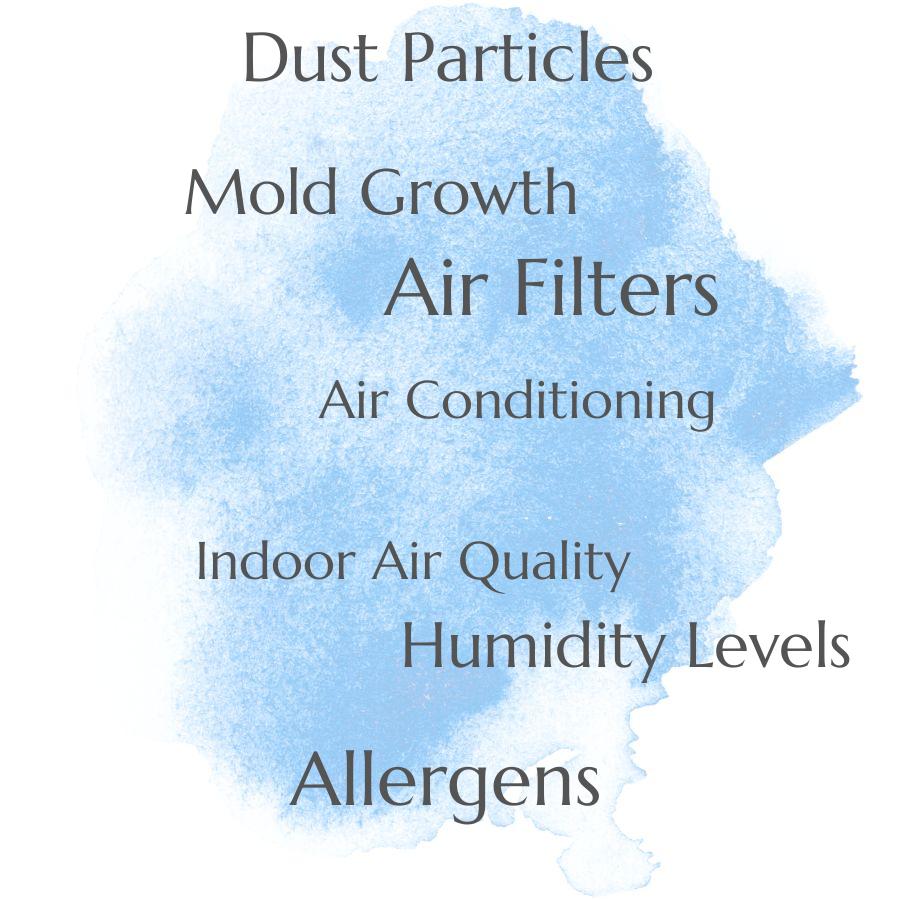Yes, air conditioning units can affect indoor air quality.
Air conditioning units can have a significant impact on indoor air quality. In fact, the Environmental Protection Agency (EPA) estimates that the indoor air quality in most homes is two to five times worse than outdoor air quality due to poor ventilation and other factors.
In this blog post, we’ll explore how air conditioning units affect indoor air quality and what you can do to improve it.
Air Filters

Air filters work by trapping airborne particles such as dust, pollen, and other allergens that can cause health problems. These particles are then removed from the air before it is circulated throughout the home or office.
By regularly replacing or cleaning your air filter, you can ensure that your indoor air remains clean and free of harmful pollutants. Using a higher-efficiency filter will help to further reduce the amount of contaminants in the air.
Dust Particles
Dust is made up of tiny particles that are found in the air and can be composed of many different materials such as pollen, pet dander, mold spores, and other allergens. When an air conditioning unit is running, these dust particles can become trapped in the filter or ducts of the system.
Over time this buildup of dust can cause poor indoor air quality due to increased levels of particulate matter in the home. If not properly maintained or cleaned regularly, these filters and ducts may also become breeding grounds for bacteria and other microorganisms which further contribute to poor indoor air quality.
To ensure good indoor air quality it is important to regularly clean or replace your AC unit’s filters as well as inspect any ductwork for signs of dirt buildup or blockages.
Humidity Levels
Humidity is the amount of water vapor present in the air, and it affects how comfortable people feel in their environment. Too much humidity can make a room feel stuffy and uncomfortable, while too little humidity can cause dryness and irritation to eyes, skin, and respiratory systems.
Air conditioning units help regulate humidity levels by removing excess moisture from the air through condensation or evaporation. This helps keep indoor spaces at a comfortable level of relative humidity (RH), which is typically between 30-50%.
If RH levels are too high or low for extended periods of time, it can lead to health problems such as allergies or asthma attacks. High RH levels create an ideal environment for mold growth which further contributes to poor indoor air quality.
Mold Growth
Mold spores are microscopic particles that can be found in both indoor and outdoor environments, but when they come into contact with moisture they can quickly multiply and spread. If left unchecked, mold growth inside an air conditioning unit can cause poor indoor air quality due to the release of harmful toxins into the air.
In addition to this, mold growth may also lead to clogged filters or other mechanical problems which could further reduce the efficiency of your AC system. To prevent mold from growing inside your AC unit it is important to regularly clean or replace filters, keep humidity levels low, and ensure that all parts of your system are properly maintained.
Allergens
Allergens are substances that cause an allergic reaction in some people, such as pollen, dust mites, pet dander and mold spores. When these particles become trapped inside the air conditioning unit or ducts, they can be circulated throughout the home or office space.
This means that those with allergies may experience increased symptoms due to exposure to these allergens. If the air conditioner is not regularly maintained and cleaned properly, this could lead to further accumulation of allergens within the system which could worsen allergy symptoms for those living in the space.
Ventilation Systems
Ventilation systems work by bringing in fresh outdoor air and circulating it throughout the building or room. This helps to reduce levels of pollutants such as dust, pollen, and other allergens that can be present in the indoor environment.
Ventilation systems also help to remove excess moisture from the air which can lead to mold growth if left unchecked. By introducing fresh outdoor air into a space, ventilation systems can help maintain healthy levels of oxygen and carbon dioxide for occupants while also reducing odors caused by cooking or smoking.
Air Circulation
Air conditioning units can help to circulate air throughout a room or building, which helps to reduce the buildup of pollutants and allergens. By circulating the air, it allows for fresh air from outside to enter and stale air inside to be expelled.
This helps keep the indoor environment clean and free of contaminants that can cause health problems such as allergies or asthma attacks. Circulating the air also helps maintain a comfortable temperature by allowing warm or cool air from outside to mix with existing indoor temperatures.
Properly functioning AC units are essential for ensuring good indoor air quality through proper circulation of fresh outdoor air into a space while expelling stale indoor air out.